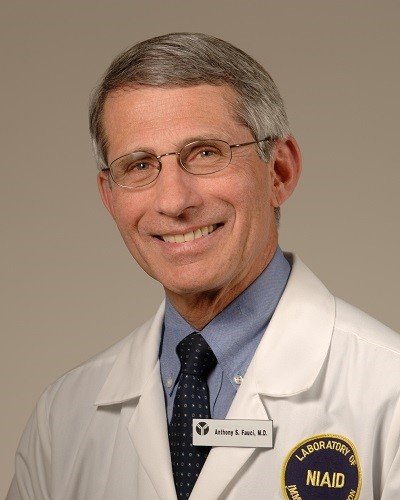Steve Dale
Dr. Anthony Fauci spoke briefly on August 22 at the closing session of the virtual convention of the American Veterinary Medical Association. During his talk, Dr. Fauci spoke about treatments, giving a shoutout to the animal work that has contributed to understanding and treatment of COVID-19.
“Human health is connected to the health of animals in our shared environment,” he said.
One of the two treatments recommended by the National Institutes of Health for hospitalized patients with COVID-19 is Remdesivir, an investigational antiviral developed by Gilead Sciences. There is a One Health connection between use of Remdesivir for humans and the success of a nearly identical medication (GS-441524), also from Gilead Sciences, in treating cats with feline infectious peritonitis, caused by feline coronavirus.
The nonprofit Winn Feline Foundation funded studies of that medication, a polymerase inhibitor, with Niels Pedersen, DVM, professor emeritus, University of California at Davis School of Veterinary Medicine. (A similar but even more successful compound at treating FIP is GC376, a protease inhibitor. Anivive is seeking FDA approval of GC376 to treat FIP cats and is investigating its use for people with COVID-19.)
Dr. Fauci also spoke about the progress of vaccine development. Phase 3 trials with 30,000 people began at the end of July and are expected to continue for several months. Fauci said he is cautiously optimistic that a vaccine will be safe and effective, based on preliminary data from the Phase 1 trial, which showed induction of neutralizing antibody at a level comparable to if not better than what is seen in convalescent plasma given to individuals in passive transfusions as well as what is received from individuals recently infected with COVID-19.
“Hopefully, we will have a vaccine in the early part of 2021—I’m cautiously optimistic that we will reach that goal—and then by 2021, throughout the year there will be doses of vaccine ready for individuals,” he said.
This article was reviewed/edited by board-certified veterinary behaviorist Dr. Kenneth Martin and/or veterinary technician specialist in behavior Debbie Martin, LVT.






